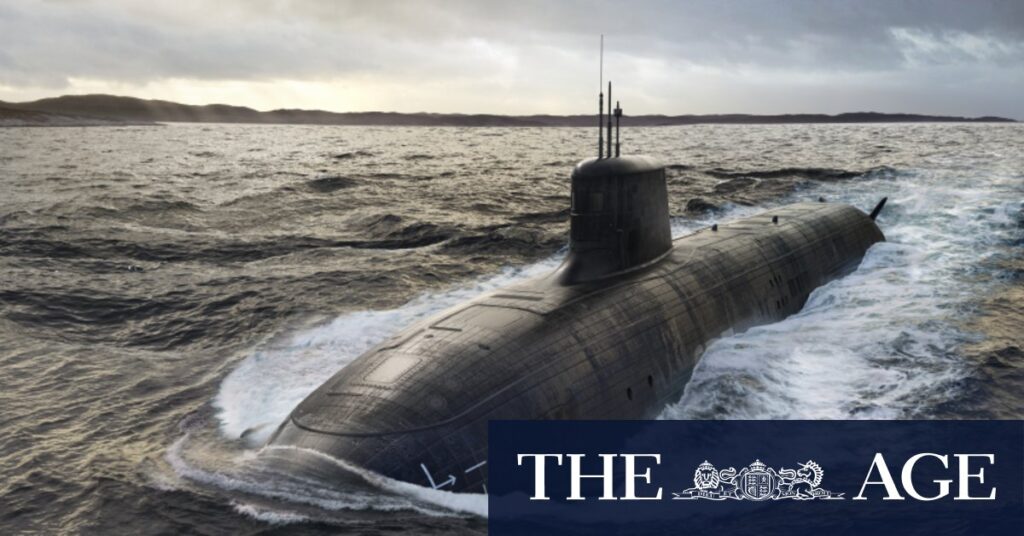
British industry leaders are calling for a decisive and unified display of support for the AUKUS alliance, warning that ongoing uncertainties could lead to skills shortages and spending delays, potentially hindering the delivery of a new submarine fleet. This call to action comes as Prime Minister Anthony Albanese travels to the United Kingdom for critical discussions with his British counterpart, Sir Keir Starmer, focusing on national security amid concerns over a Pentagon review that might necessitate changes to the expansive project.
Following his visit to the United Nations in New York, Albanese is set to engage in talks with Starmer and senior government ministers, as well as meet King Charles and participate in political discussions at the UK Labour Party conference. Australia has committed nearly $5 billion to British industry for the development of nuclear power plants for the new fleet, with expectations of increased spending as construction progresses over the next decade.
Strategic Implications and Industry Concerns
National security experts have highlighted the potential “existential battle” facing Australia and the UK if construction delays occur, while Make UK Defence, representing defense companies, has expressed concerns about slow investment. Andrew Kinniburgh, director-general of Make UK Defence, emphasized the need for clear demand signals from the governments involved.
“The problem we have is this lack of demand signals,” Kinniburgh said. “You can create as conducive an environment as you like, but if there are no demand signals, industry is not going to start investing.”
The AUKUS pact, established in 2021, involves Australia, the UK, and the US in a “pillar one” plan to construct nuclear-powered submarines and a “pillar two” initiative for defense science and technology cooperation. Kinniburgh noted significant skills shortages across the alliance, particularly concerning the undefined goals of “pillar two.”
Expert Perspectives and Political Context
The UK parliamentary inquiry into AUKUS is examining the feasibility of delivering up to 12 vessels for the Royal Navy by the late 2030s. Defense expert Sophia Gaston, a senior fellow at the Centre for Statecraft and National Security at King’s College London, described AUKUS as a national mission crucial for the UK and its allies to secure necessary skills and technology.
“We need to understand that this is an active battle that is going to decide our future economic growth, our capacity to act with autonomy, and our capacity to influence geopolitical outcomes,” Gaston stated during a public hearing.
Gaston further characterized AUKUS as a “disruptive project” aimed at countering an assertive China and Russia, emphasizing that the pact is not only about security but also about economic defense.
Challenges and Future Outlook
Dr. Sidharth Kaushal, a senior research fellow at the Royal United Services Institute, warned of the risks associated with delays in submarine construction. He highlighted potential vulnerabilities for the US and UK, particularly in the face of China’s expanding “area denial bubble” and Russian submarine threats.
“The risks to the UK are that, in the short term, we are looking at a trough in availability of [nuclear-powered submarines],” Kaushal explained. “The implications if pillar one of AUKUS does not deliver are quite dire and quite immediate for the UK.”
Australia plans to have five vessels operational by the early 2040s using the SSN-AUKUS design, at a projected cost of $368 billion over three decades. The British timetable depends on maintaining a construction rate of one submarine every 18 months, a target currently unmet due to extended build times for existing designs.
The Pentagon’s review, led by US Under Secretary of War for Policy Elbridge Colby, has extended beyond its initial 30-day timeline, with completion expected in the northern autumn. Despite delays, the US administration has reassured Deputy Prime Minister Richard Marles of the pact’s continuation.
In its submission to the UK inquiry, Make UK Defence called for a “clear, unified, public statement of support” for AUKUS from the partner countries, a statement that remains pending as the Pentagon review continues.
As the AUKUS alliance navigates these strategic and logistical challenges, the call for clarity and commitment from all parties involved remains critical to ensuring the successful delivery of this ambitious defense project.







